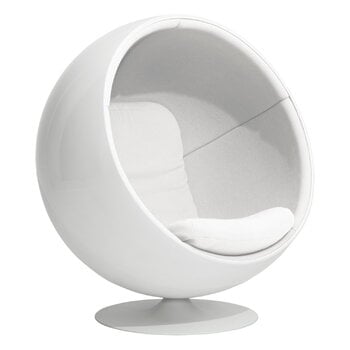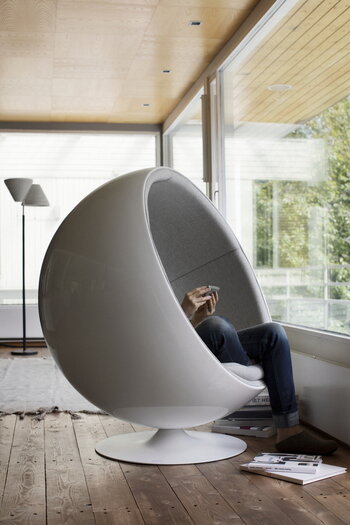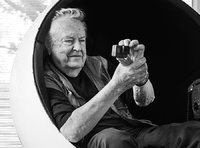The Ball Chair was designed by Eero Aarnio in 1963. Presented to the world at the International Furniture Fair in Cologne in 1966, it quickly became Aarnio's international breakthrough and an icon of the 1960's space age. Eero Aarnio has always been fascinated by new materials and round shapes – one of his favourite materials is fibreglass, which gives the chair a free, elastic shape. The round shell of the Ball Chair is simple yet ingenious, and has often been referred to as a “room in a room”.
The Ball Chair is one of the best-known classics of Finnish design, even though its modernist, futuristic design differs from the natural and minimalist Scandinavian design traditions. The Ball Chair can be found in the collections of several design museums around the world, and through the years, it has also made numerous pop culture cameos in films, music videos and magazine covers.
The Ball Chair was updated in 2021 and upholstered with a wool blend fabric specially developed for the chair. The iconic piece comes in an array of colour combinations, with the white upholstery option underlining the space-age aesthetics and the round shape of the chair.








